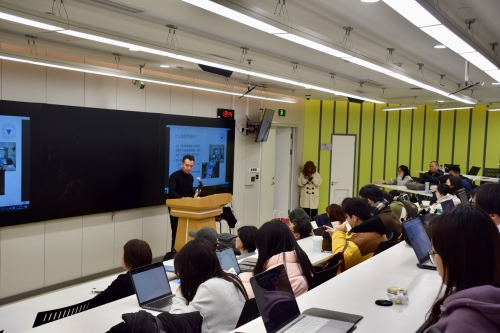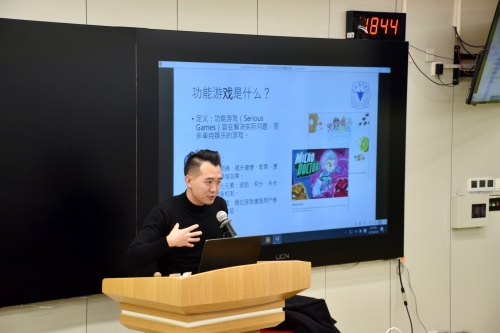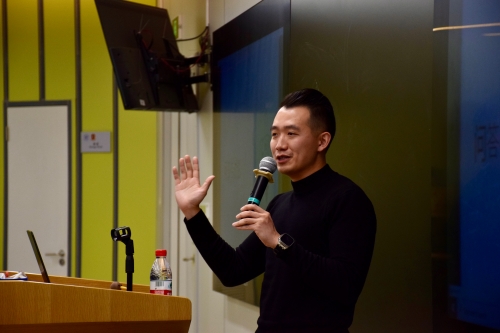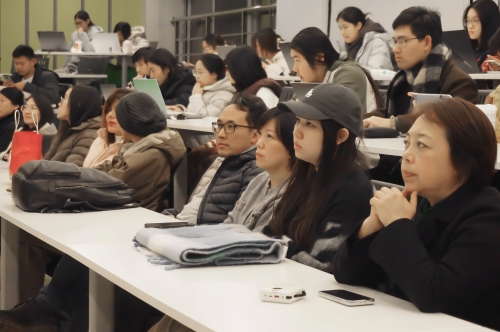|
Lecture Night: Managing Your Health through Serious Games
|
|||
|
|||
|
On the evening of December 19th, Dr. Chen Jinsong, Deputy Director of the Center for Digital Health Governance and Ethics at the School of Law, Hangzhou City University, a joint postdoctoral fellow at Zhejiang University and Hangzhou City University, a PhD supervisor at the University of Auckland, New Zealand, was invited to the University of Waikato Joint Institute at Hangzhou City University (NZUWI) to deliver a lecture on “Digital Health Applications: Serious Games and Chronic Disease Management” to the students. He graduated from the University of Auckland, with a PhD in Health Sciences, and received a license in Clinical Research from Johns Hopkins University. Dr. Chen first addressed the incidence of chronic disease and the significant challenges it poses to health. According to the World Health Organization (WHO), chronic diseases contribute to 71% of global mortality. At the same time, the increasing number of young patients with chronic diseases has become an important global public health challenge. In China, there are more than 300 million chronic disease patients, including about 140 million diabetes patients. Chronic diseases significantly affect people's quality of life. There is an urgent need to find more ways to better manage chronic diseases. Based on this situation, Dr. Chen focuses his research on the application of digital health. Digital health means the use of information technology and digital tools to optimize the processes of health management, disease diagnosis, treatment and health monitoring. In China, more than 300 million people reportedly use mobile health apps.
Serious Games - A New Hope for Chronic Disease Management
Serious games are games that go beyond entertainment and aim to solve practical problems with educational goals. A serious game is usually equipped with game mechanisms such as rewards, points, levels, feedback, etc., to achieve management effects through user participation and interaction.Dr. Chen mentioned that serious games have great potential to enhance patient treatment adherence, provide fun health education and behavior change methods, and personalize health interventions. The combination of game mechanics with health management goals provides new solutions for chronic disease management.He shared about Lumi Health, a health management app with features such as health screenings, immunization promotion, sleep monitoring, nutritional advice, and care for the elderly. The app has received over 80% user satisfaction, with users reporting that it has helped them lead healthier, more active lives. This case demonstrates the effectiveness of serious games in promoting healthy living.
Challenges and Responses to Serious Games
Dr. Chen also discussed the challenges and strategies of serious games in chronic disease management from the aspects of application design, user participation retention, patient adherence, economy, and society.For example, how to protect the privacy of users' health data? How to accurately understand the needs of patients with chronic diseases? How to provide personalized health goals and introduce incentives to ensure patients' long-term adherence to healthy behaviors? And how to balance the entertainment and medical rigor of serious games to be more widely accepted?Dr. Chen noted that artificial intelligence (AI), digital health, and personalized medicine will play an increasingly valuable role in chronic disease management and health management in the future. Development of technology will lead to further advances in data sharing and integration, real-time monitoring, and feedback from smart devices. He believes that future health management platforms will be smarter and more user-friendly. The integration of digital health and serious games is the future trend of health management. We are looking forward to more innovative solutions in this field to bring health benefits to people's lives. |
|||
 【Print】 【Print】
 【Close】 【Close】 | |||



